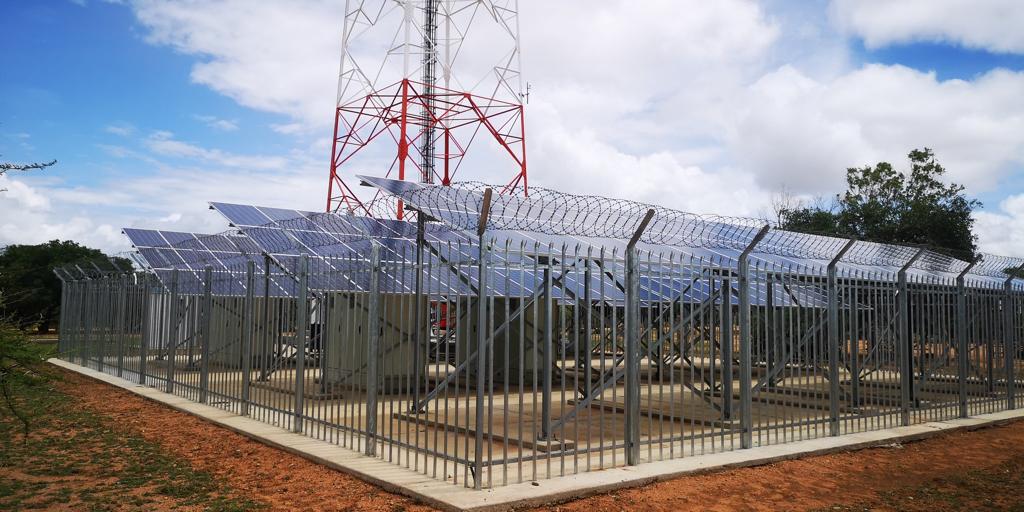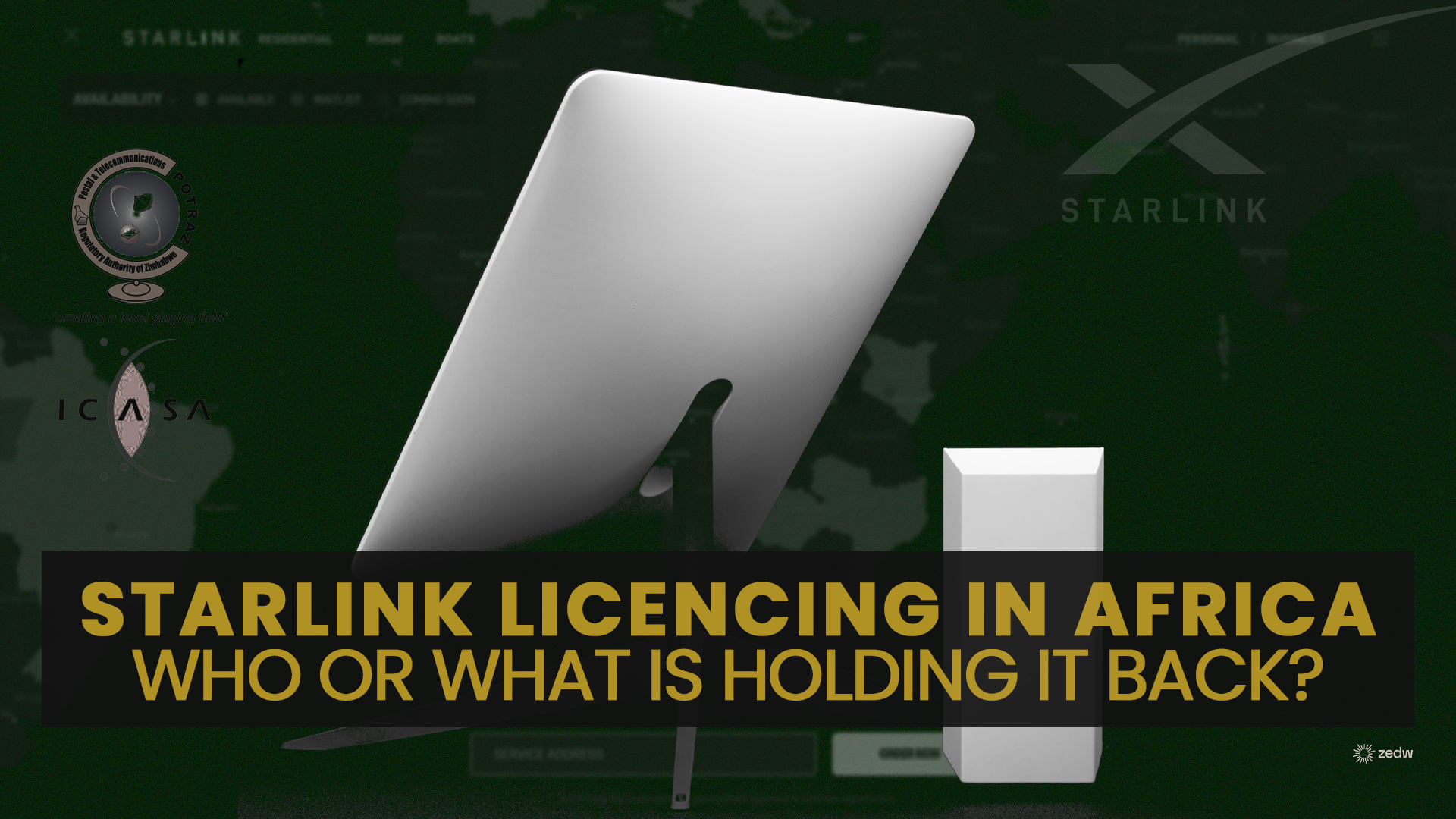The Zimbabwean mobile network operator space has just opened up with the introduction of Dolphin Telecom which is set to be Zimbabwe’s first Mobile Virtual Network Operator (MVNO).
“It is true that we are licencing new players in the telecommunications sector… Mobile virtual network operators are also being introduced so that we introduce competition in the market because these (MVNOs) will concentrate on services and applications, so that the customer can benefit”
Dr Machengete, POTRAZ Director General (via ZBC News)
Whether Dolphin Telecom is a local firm or an import is not yet clear… However, if you check online there is a company that goes by the same name that comes from Dubai.
That Dolphin Telecom looks more like an Internet Access Provider than a mobile virtual network operator. But with the new Unified licencing structure under SI 12 of 2021, it might be the Dubai Dolphin Telecom has been approved to operate as an MVNO in Zimbabwe.
What we do know is that the outfit that’s about to launch is investing US$15 million into its operations according to the MVNOs Managing Director, Nyasha Charumbira.
“We are at an advanced stage of implementing our core network systems. We are concluding a few things and are certainly very close to opening our doors,”
Nyasha Charumbira, Managing Director Dolphin Telecom (via Kukurigo News)
Before we dig into this any further, there is a substantial amount of housekeeping we have to do
What is a mobile virtual network operator (MVNO)
“We have already secured an agreement with one mobile network operator, and our model aims to create a new layer of efficiency in the virtualisation space. Infrastructure sharing has been underutilised because of a failure to establish win-win models, but this is a problem we believe we have solved, as evidenced by the agreement we have secured,”
Nyasha Charumbira, Managing Director Dolphin Telecom (via Kukurigo News)
A mobile virtual network operator (MVNO) is a carrier that uses existing network infrastructure to carry out its operations. So in this instance, Dolphin Telecom will partner up with either NetOne, Econet or Telecel and use their base stations to service its prospective customers.
MVNOs, depending on their level of operations, can make use of an existing MNO’s base stations, transceivers, home location registers, and switching centres.
They can also make use of an MNO’s packaging, pricing, and billing systems as well as value-added services like voicemail.
Lastly, there are MVNOs that will, on top of everything else, require customer-facing services from their host MNO.
MVNOs are classified by POTRAZ under one of the following categories:
- Full Mobile Virtual Network Operator (MVNO) – these kinds of operators are essentially like an MNO but they don’t have their own radio network
- Mobile Virtual Network Enablers (MVNE) – are entities that don’t have any interaction with customers but provide network infrastructure for MVNOs.
- Light MVNO – This kind of operator does its own customer support, marketing, sales and distribution. It has the ability to set its own tariffs, in accordance with local regulations.
- Branded/Reseller MVNOs – sometimes known as “Skinny MVNOs” they are are operators who are totally reliant on their host MNO for every aspect of serving their customers.
What kind of MVNO is Dolphin Telecom going to be?
We can speculate on this from what Dolphin Telecom’s MD said about the scope of their operations
“This network builds on a robust existing infrastructure to answer a critical problem, which is at the service layer, and our ambition, which is driven by technology, is to launch with best-in-class user experience and customer services in Zimbabwe.”
“We have tightened the software layer to ensure that the issues that people are frustrated with, regarding failure to top up; top-ups not being recognised; having to switch network settings for data to activate; and other common problems clogging customer service lines are resolved within the software later.”
Nyasha Charumbira, Managing Director Dolphin Telecom (via Kukurigo News)
According to what Mr Charumbira said, Dolphin looks to be coming into the Zimbabwean telecoms market as a Full MVNO. It seems like they are building quite a lot around the product that isn’t dependent on their host MNO.
The business use case for coming into Zim as an MVNO
Coming into a market as an MVNO means that the cost of actually starting out is far cheaper than being a full Mobile Network Operator (MNO). An MVNO doesn’t have to set up any infrastructure because they will either use an MNO’s existing base stations or make use of an MVNEs network.
Additionally, licencing is cheaper when a company is an MVNO. According to the Postal and Telecommunication Regulatory Authority of Zimbabwe’s (POTRAZ) Unified Licence structure, MVNOs pay far less in licencing fees than MNOs.
| # | Licence Name | Application Fee (USD) | Initial/Renewal Fee (USD) | USF + Annual Licence Fee (USD) | Tenure (Years) |
|---|---|---|---|---|---|
| 1.4.1 | Full Mobile Virtual Network Operator (MVNO) | 50.00 | 50,000.00 | 3.5% of Gross turnover plus VAT | 20 |
| 1.4.2 | Mobile Virtual Network Enabler (MVNE) | 50.00 | 500.00 | 3.5% of Gross turnover plus VAT | 20 |
| 1.4.3 | Light MVNO | 50.00 | 5,000.00 | 3.5% of Gross turnover plus VAT | 20 |
| 1.4.4 | Branded/Reseller MVNO | 50.00 | 500.00 | 3.5% of Gross turnover plus VAT | 20 |
| 2.1 | Mobile Network Operator | 800.00 | 137,000,000.00 | 3.5% of Gross turnover plus VAT | 20 |
The tradeoff to a lower barrier to entry is that you will have to pay an MNO or MVNE to use their network infrastructure.
What benefits is Dolphin Telecom bringing to Zimbabwe
Mobile Virtual Network Operators can offer more bespoke packages than what MNOs offer. They can do this by focusing on a specific market segment. An example is how there are Zimbabweans who are heavy data users but don’t really use GSM services. An MVNO could come into the market and specialize in just data services.
MVNOs can also offer cheaper rates for services because they don’t have to worry about network infrastructure investment and upkeep. In the local context, this could result in Dolphin Telecom undercutting Econet, Telecel and NetOne when it comes to tariffs.
It’s not just Dophin Telecom there are two more on the way
“Adding on to that, we have limited spectrum. The spectrum we have allocated to the three, should be efficiently utilised when they roll out”
Dr Machengete, POTRAZ Director General (via ZBC News)
Zimbabwe’s mobile telecommunications space is set to expand even further with the addition of 2 more MVNOs according to POTRAZ Director General Dr G. Machengete.
Who these new players are is not yet known, but this is a step in the right direction for the telecoms space in Zimbabwe.
Also Read
Local fintech Uhuru to test with a bank under RBZ Fintech Sandbox – Uhuru Innovative Solutions will test with a local bank under the umbrella of the Reserve Bank of Zimbabwe’s (RBZ) Fintech Sandbox. The local fintech firm becomes the latest to join the sandbox which seeks to bring startups in payments, credit, investment and more, closer to the regulator and traditional financial institutions.








